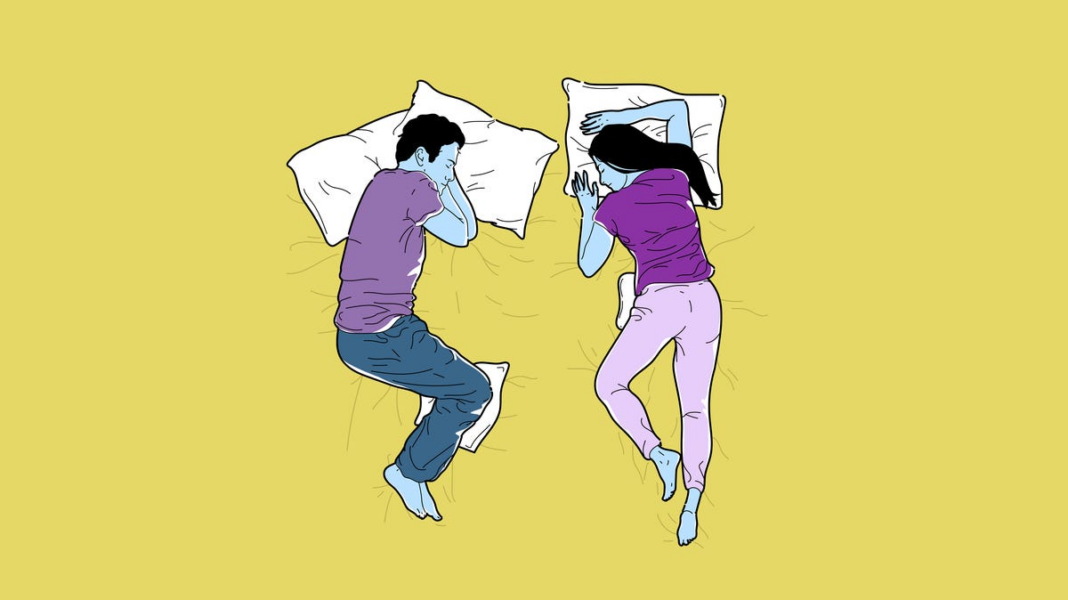What is the best way to sleep? How different sleeping positions can impact your health
Sleeping is crucial for our body to recharge and heal itself, with the National Institute of Health estimating that we spend one-third of our lives asleep.
However, the way you sleep, specifically your sleeping position, can significantly influence your health and sleep quality.
Many individuals have a preferred sleeping position. While there’s no single best position, some may be more advantageous for certain health concerns. Improper sleeping posture can cause discomfort, leading to back, arm, or shoulder pain, as well as poor sleep quality.
There are four primary sleeping positions, each with unique benefits and drawbacks. Understanding these can help you choose the best position for a restful night and avoid waking up with discomfort.
Side sleeping
According to the Sleep Foundation, side sleeping is the most popular position, with over 60% of adults choosing this way to sleep. It is also deemed the healthiest option by the National Council on Aging.
Dr. Chester Wu, a sleep specialist, states, “This position promotes proper spinal alignment, decreases snoring and sleep apnea symptoms, and supports digestion and heart health.”
Does it matter which side you sleep on, the left or right?
Yes, according to the Sleep Foundation. Sleeping on the left side enhances blood circulation and lessens pressure on internal organs. Those with acid reflux or pregnant individuals may find left-side sleeping beneficial, while those with heart conditions might prefer the right side.
Stomach sleeping
Generally, sleeping on one’s stomach is not considered a healthy choice, as it places excessive strain on the neck and spine, potentially leading to increased discomfort, according to the Sleep Foundation.
Only about 7% of adults prefer this sleeping position, as reported by News Medical.
Back sleeping
Sleeping on your back is often regarded as the most supportive position for the spine and may alleviate chronic neck or back pain, according to the Mayo Clinic. This position facilitates better breathing as it allows the face to remain upright, which can help reduce nasal congestion.
However, there are some disadvantages. Back sleeping can cause gravity to pull your tongue and soft palate towards the throat, partially blocking the airway and leading to snoring.
Fetal sleeping
The fetal position involves lying on your side with your knees drawn up to your chest.
More than 40% of people favor this position, particularly women who are twice as likely as men to curl up in this way, as mentioned by WebMD. The fetal position can relieve spinal pressure and assist those with back pain, according to the Sleep Foundation.
How to enhance your overall sleep quality
While in bed, there’s not much to actively do—let your body rest and rejuvenate. However, you can create a conducive sleeping environment and establish good sleep habits to prepare for quality rest, advises Dr. Abhinav Singh, director of the Indiana Sleep Center and expert at Sleep Foundation, who is also a member of the American Academy of Sleep Medicine and author of “Sleep to Heal.”
Here are some tips from Singh and other sleep experts for improving sleep quality:
◾ Set aside time to unwind before bed with activities like meditation, warm baths, reading, or listening to soothing music.
◾ Create a cool, dark, comfortable, and quiet sleeping space.
◾ Maintain a consistent sleep and wake schedule.
◾ Use breathable bedding to help your body regulate temperature during sleep.
◾ Avoid consuming alcohol, heavy meals, caffeine, and electronics before bedtime.
◾ Incorporate stretching into your nighttime routine and first thing in the morning to relax your muscles.
This article has been updated with new information.

